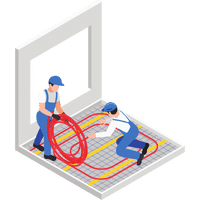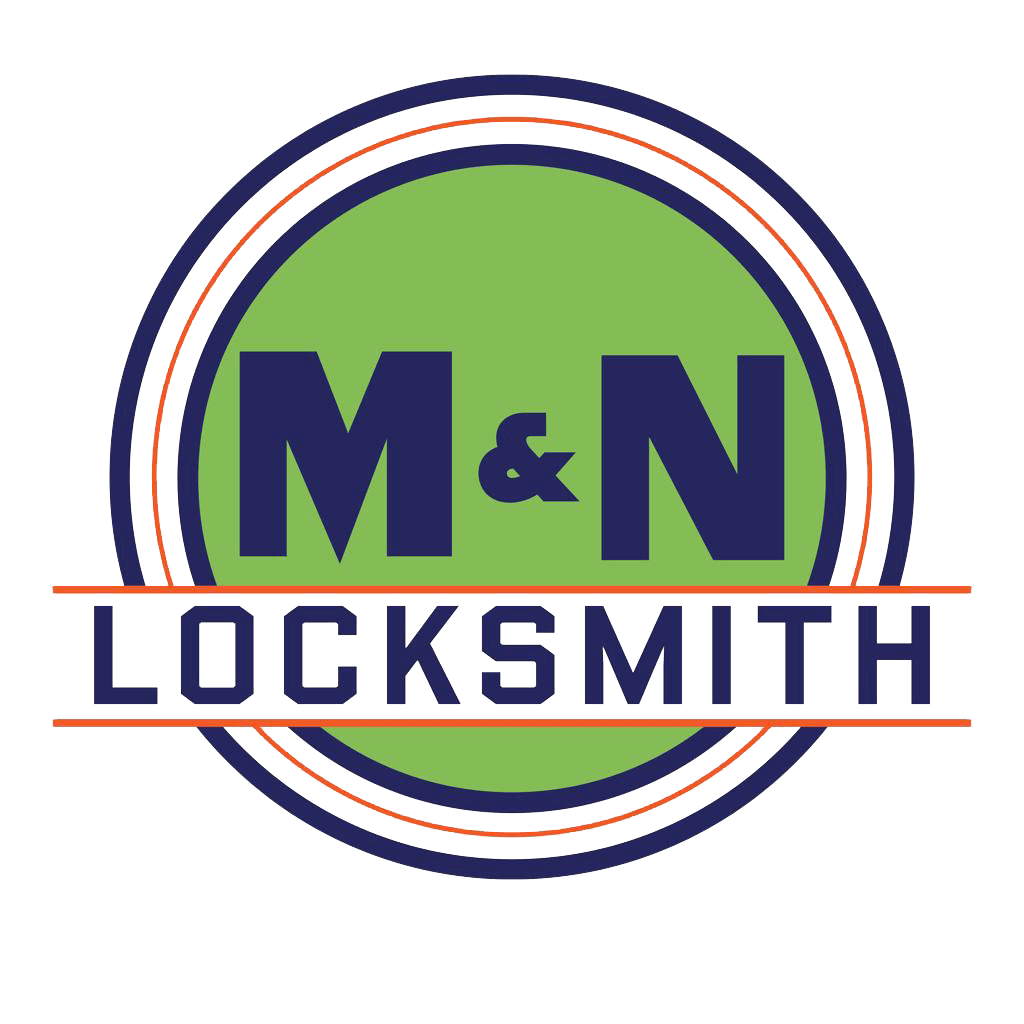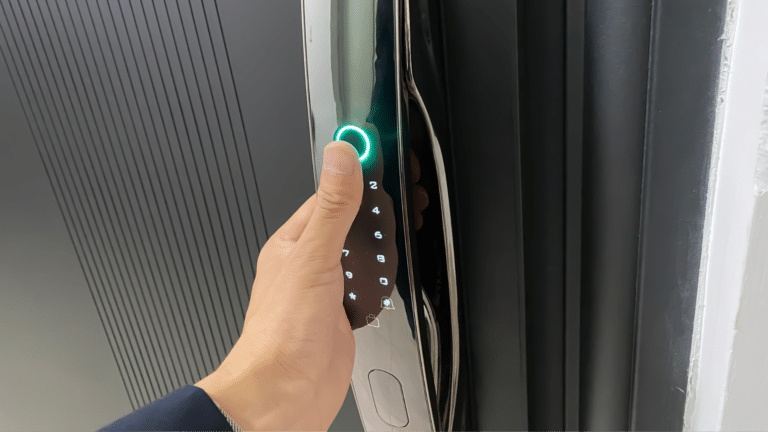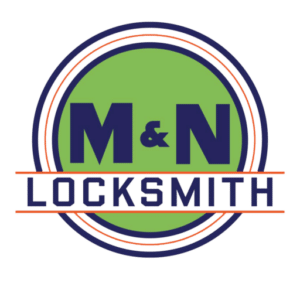Unlocking Security: A Comprehensive Guide to Smart Locks
A Smart Lock is an electronic device designed to secure doors and grant access using digital authentication methods, such as Bluetooth, Wi-Fi, or biometrics, instead of traditional keys. These locks offer features like remote access, monitoring, and integration with smart home devices, enhancing convenience and security.
Understanding Smart Locks
Smart Locks are electronic devices designed to secure doors and grant access using digital authentication methods. They utilize technologies such as Bluetooth, Wi-Fi, and biometrics to provide keyless entry options. Smart Locks offer features like remote access, monitoring, and integration with other smart home devices, revolutionizing home security compared to traditional locks.
Types of Smart Locks
There are various types of Smart Locks available, including:
- Traditional keyless entry
- Bluetooth-enabled locks
- Wi-Fi-connected locks
- Biometric Smart Locks
Each type offers unique features and benefits tailored to different security needs and preferences, surpassing the limitations of traditional locks.
Installation and Setup
Installing a Smart Lock can be done through professional installation or as a DIY project, offering more flexibility and convenience compared to traditional lock installation. This section provides a step-by-step guide for both methods, along with tips for optimal setup and configuration to ensure proper functionality.
Security Features
Smart Locks incorporate advanced security features such as encryption, authentication, and remote access control, providing a higher level of security compared to traditional locks. These features help prevent unauthorized access and ensure the safety of your home and belongings.
Smart Home Integration
Smart Locks seamlessly integrate with smart home platforms, allowing for automation, remote control, and voice commands. This integration enhances convenience and accessibility while maximizing the effectiveness of your home security system compared to the limited capabilities of traditional locks.
Maintenance and Troubleshooting
Regular maintenance is essential to keep Smart Locks functioning properly. This section provides maintenance tips and troubleshooting guidelines to address common issues and ensure the longevity of your Smart Lock system, highlighting the ease of maintenance compared to traditional locks.
Advantages of Smart Locks
Smart Locks offer numerous benefits over traditional locks, including:
- Enhanced security
- Convenience
- Remote control
- Integration with smart home ecosystems
These advantages make them a valuable investment for homeowners looking to upgrade their home security.
Considerations Before Buying
Before purchasing a Smart Lock, it’s essential to consider factors such as:
- Compatibility with existing door hardware
- Budget
- Brand reputation
- Warranty
This section provides guidance to help you make an informed decision, taking into account the differences between Smart Locks and traditional locks.
Addressing Common Concerns about Smart Locks
Smart Locks have gained popularity for their advanced features, but some common concerns may arise when considering their adoption. Addressing these concerns is crucial for homeowners to make an informed decision about integrating Smart Locks into their home security system.
Security Risks
Explanation:
One common concern is the security of Smart Locks and the potential vulnerability to hacking or unauthorized access.
Addressing the Concern:
- Smart Lock manufacturers employ robust encryption protocols to safeguard against hacking attempts.
- Regular software updates are provided to patch any identified security vulnerabilities.
- Users can enhance security by following best practices such as using strong, unique passwords and enabling two-factor authentication where available.
Power Outages
Explanation:
Another concern is how Smart Locks operate during power outages or if the device malfunctions.
Addressing the Concern:
- Many Smart Locks come with backup power options, such as battery support, ensuring that they remain operational during power outages.
- Homeowners can also keep traditional keys as a backup means of entry in case of any technical issues.
Compatibility with Multiple Users
Explanation:
Some individuals worry about how Smart Locks can accommodate multiple users or guests while maintaining security.
Addressing the Concern:
- Smart Locks often offer the flexibility to grant temporary access codes or virtual keys to guests or service providers, which can be easily revoked after use.
- Users can also monitor access history to track who has entered their home and when.
Privacy Concerns
Explanation:
Privacy concerns may arise regarding the collection and use of personal data by Smart Lock systems.
Addressing the Concern:
- Reputable Smart Lock manufacturers are transparent about the data they collect and have robust privacy policies in place.
- Homeowners can review and understand the privacy terms and settings associated with their Smart Lock system to ensure their comfort with data usage.
By proactively addressing these common concerns, homeowners can feel more confident in adopting Smart Lock technology as a secure and convenient addition to their home security measures.
Future Trends and Innovations
This section explores emerging technologies and future trends in Smart Locks, predicting advancements in sustainability, integration, and security features that will continue to surpass traditional locks. By staying informed about future innovations, homeowners can prepare for the next generation of home security solutions.
Conclusion
In conclusion, Smart Locks offer a modern and effective solution for home security, providing convenience, accessibility, and advanced security features. By understanding the functionality, types, installation process, security features, and integration options of Smart Locks, homeowners can enhance the safety and security of their homes with confidence, surpassing the limitations of traditional locks. Addressing common concerns and staying informed about future trends ensures that homeowners are well-prepared to embrace the next level of home security with Smart Lock technology.
FREQUENTLY ASKED QUESTIONS
Are Smart Locks suitable for all types of doors?
- Smart Locks are designed to fit most standard door types and sizes. However, it’s essential to check compatibility with your specific door type and dimensions before purchasing a Smart Lock.
Can multiple users have access to a Smart Lock?
Yes, many Smart Locks support multiple user accounts and access codes, allowing homeowners to grant access to family members, guests, or service providers with customized permissions and schedules.
Are there any compatibility issues with Smart Locks?
Compatibility can vary depending on the Smart Lock and the devices or systems it integrates with. It’s essential to check compatibility with your existing door hardware, smartphone operating system, and smart home ecosystem before purchasing a Smart Lock.
What happens if the power goes out or the Smart Lock malfunctions?
Most Smart Locks come with backup power options, such as battery backups or mechanical keys, to ensure access in case of power outages or malfunctions. Additionally, some models offer manual override options for added peace of mind.
Can Smart Locks be integrated with other smart home devices?
Yes, Smart Locks can be integrated with various smart home devices and platforms, including security cameras, doorbell cameras, voice assistants, and home automation systems, to create a comprehensive smart home security solution.
Are Smart Locks secure?
Smart Locks incorporate advanced security features such as encryption, authentication, and remote access control to prevent unauthorized entry. However, like any digital device, they are not immune to hacking, so it’s essential to choose reputable brands and follow best security practices.
Are Smart Locks easy to install?
Installation difficulty can vary depending on the type and brand of Smart Lock. Some models offer easy DIY installation, while others may require professional installation for optimal setup.
What are the benefits of using a Smart Lock?
Smart Locks offer enhanced security, convenience, and accessibility. They allow users to remotely control access to their homes, monitor entry activity, and integrate with other smart home devices.
How does a Smart Lock work?
Smart Locks utilize technologies like Bluetooth, Wi-Fi, or biometrics to authenticate users and unlock doors. They can be controlled remotely via smartphone apps or integrated with smart home systems.
What exactly is a Smart Lock?
A Smart Lock is an electronic device that replaces traditional locks and keys with digital authentication methods to secure doors and grant access.


